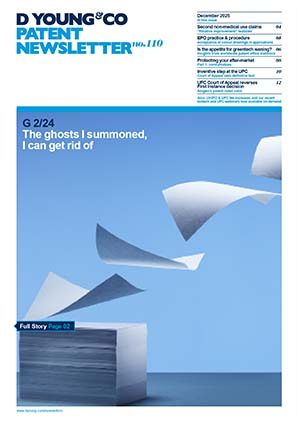R&D tax relief changes…out comes the spirit level!
Following the recent budget from the UK Government, levelling changes are set to occur which will affect the R&D tax credit landscape, making it less generous for SMEs, but more beneficial for larger entities.
As background, the UK Government provides for a number of tax-relief schemes for entities performing innovative research/projects in science and technology, which include:
- Small and medium sized enterprises (SME) research and development relief; and
- Research and development expenditure credit.
The SME R&D relief scheme is nominally applicable to smaller enterprises, that is, those comprising fewer than 500 staff, and with a turnover of under €100m or a balance sheet total under €86m. Under the scheme, it is possible to obtain additional tax relief on a proportion of an enterprise’s cost which relates to innovative research or projects in science and technology. This additional tax relief was previously levied at 130% of the proportion of such R&D qualifying costs. This meant that if a qualifying R&D spend under the scheme was deemed as being £100,000 for a given year, for a profit making enterprise this might have translated to a tax saving for the year of £24,700 (130% of £100,000, then reduced to 19% which is the nominal level of UK corporation tax).
However, following the latest budget, the tax relief will be reduced from this headline percentage figure of 130%, down to 86%. So in the example, this would translate the tax saving down to £16,340.
Another tax-relief scheme is the research and development expenditure credit (RDEC) scheme, which is open to a wider range of entities beyond SMEs. Under the RDEC scheme, it previously provided a lesser tax credit calculated at 13% of a company’s qualifying R&D expenditure. To put this roughly in context, for a qualifying R&D spend from a given year of £100,000, this might have translated to a tax saving for a profit making company under the RDEC scheme of £10,530 (13% of £100,000, less 19% to account for UK corporation tax).
However, following the latest budget, the tax relief under this scheme will be uplifted from the 13% figure, to 20%. So in the above example, this would notionally translate into a revised tax saving of £16,200.
In all therefore, the latest measures from the UK Government represent a levelling between the recoverable relief between the two tax credit schemes, with SMEs feeling the impacts of the changes most profoundly.
These changes will take effect for expenditure incurred on or after 01 April 2023.
Useful link
UK Government policy paper: reforms to R&D tax reliefs, published 21 November 2022: https://www.gov.uk

